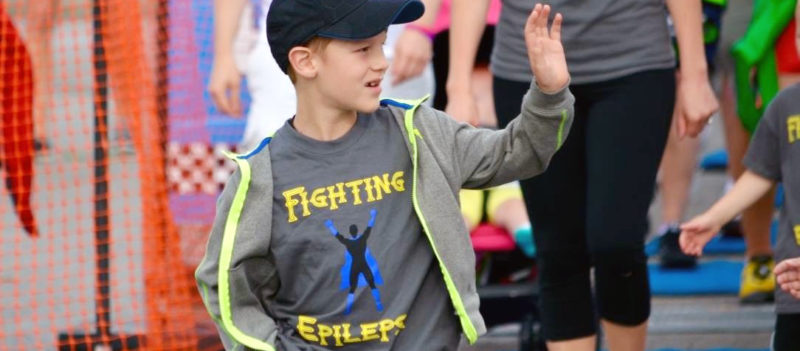In the middle of May 2014, out of nowhere, my son, Will, had a seizure. Little did we know that it wouldn’t be his last, nor how much our lives were about to change.
Soon after, our pediatrician sent us to a children’s hospital close to our hometown in Indiana for an EEG. Will had 10 seizures during the procedure and was diagnosed with generalized epileptic seizures.
Medication Not Controlling Will’s 80+ Daily Seizures
Unfortunately, Will’s seizures continued to progress. At the worst point, he was having 80-100 seizures a day and on multiple medications that were clearly not controlling them. We also learned that his seizures occurred all over his brain, which meant that he wasn’t a good candidate for surgery. Eventually, he received a different diagnosis, called refractory epilepsy. This means that his epilepsy does not respond well to medication.
Later that fall he started Kindergarten. He had a hard time focusing on learning because he was seizing so much throughout the day. At least once a week he would pass out in class from enduring too many seizures in a row.
This was no way to live – we knew we had to try something else! So we made our way to the neurology department at Cincinnati Children’s. They immediately began the process of weaning him off three medications. Additionally, they recommended he try a different medication, Felbamate, and the Modified Atkins Diet (MAD). This is a less restrictive version of the ketogenic diet.
Will Tries the Ketogenic Diet to Retrain His Brain to Accept Medication
He tried MAD for a couple of weeks, but it was not enough to reduce the number of seizures. To better his chances, they moved him to the ketogenic diet at a 2:1 ratio. The ketogenic diet is very restrictive and balances carbohydrates, protein and fat grams with each meal. As wild as it may seem, this combination changes the way energy is used in the body. The result is a state known as ketosis, which can lead to a reduction in the occurrence of seizures. The 2:1 ratio means that 85% of his total calories for the day came from fat. His dietitian calculated each meal and snack so that we knew exactly how many calories, protein, fat and sugar to give him each day.
The purpose of the diet is to retrain his brain to help accept medication or to stop the brain from misfiring and causing seizures. Once that “reset” happens, the idea is that eventually he would be able to reintroduce a more normal diet and maintain seizure freedom.
Will stayed in the hospital for a few days while they introduced the ketogenic diet to him. They wanted to see how his body responded and make adjustments where necessary. His dietitian checked his urine and blood to ensure that he was making ketones, as well as his blood sugar levels.
Within two weeks of starting the keto diet, the number of seizures decreased and he began having seizure-free days! His energy level began to increase, he wanted to play again, and most importantly, he wasn’t scared anymore.
The ketogenic diet worked miracles for Will. It took about two months to wean him off slowly. We worked closely with his dietitian to re-introduce carbohydrates. Once he completed the ketogenic diet, he avoided simple sugars like candy and cake for a period of time. But now, a year later, he is eating a regular diet, including dirt cake!
Will is Now Seizure Free

Will has now been seizure free since July 2016. He still takes medication three times a day and we have to watch what he eats. But he is living a more normal life.
Most excitingly, we have our social butterfly back. He has started playing sports again and will begin his second season of baseball this Spring.
Will’s journey with epilepsy has been the hardest thing our family has experienced. We’re so grateful for the ketogenic diet and what it has allowed Will to do – maintain seizure freedom! Now his biggest challenges are choosing what he wants to accomplish next, both on and off the baseball field. And we can’t wait to cheer him on from the sidelines.
Editor’s note: When following a ketogenic diet for epilepsy, it is important to be closely monitored by an experienced comprehensive medical team. They will ensure that patients do not have a condition that will be worsened by the diet. In addition, they will make sure that if there are side effects, they will be recognized early and managed appropriately.
To learn more about how our Comprehensive Epilepsy Center utilizes the ketogenic diet, please call 513-636-4222 or fill out an online form.






Congratulations will I am 42 years old and suffering from epilepsy and MY diet I am 122 pounds light for me keep up the good work!!!God bless you